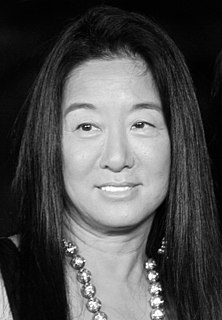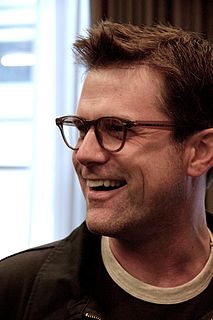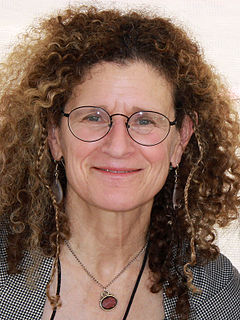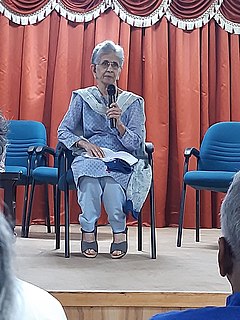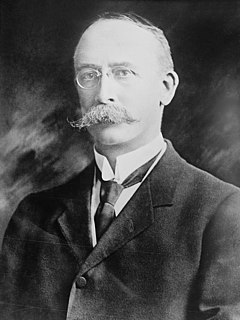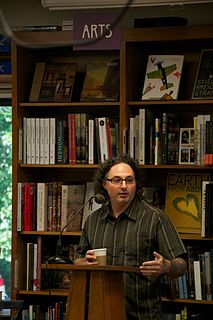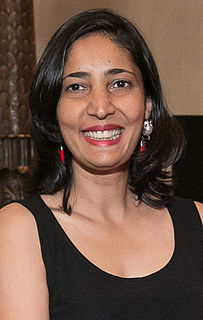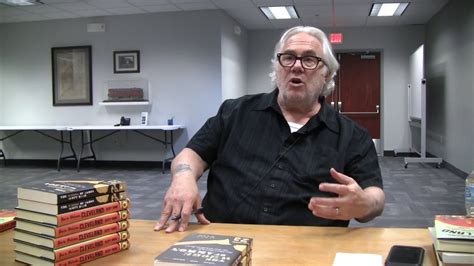Top 653 Intensely Quotes & Sayings - Page 11
Explore popular Intensely quotes.
Last updated on April 15, 2025.
I have compromised down the line. I've disliked it intensely in the old days when you were trying to talk race relations and they would not allow you to talk about the legitimacies of race relations. In the old days, you didn't talk about black, you talked about Eskimo or American Indian, and the American Indian was assumed not to be a problem area.
Odd, she thought, how intensely you knew a person, or thought you did, when you were in love - soaked, drenched in love - only to discover later that perhaps you didn't know that person quite as well as you had imagined. Or weren't quite as well known as you had hoped to be. In the beginning, a lover drank in every word and gesture and then tried to hold on to that intensity for as long as possible. But inevitable, if two people were together long enough, that intensity had to wane.
I have seen
A curious child, who dwelt upon a tract
Of inland ground, applying to his ear
The convolutions of a smooth-lipped shell;
To which, in silence hushed, his very soul
listened intensely; for from within were heard
Murmurings whereby the monitor expressed
Mysterious union with its native sea.
Even such a shell the universe itself
Is to the ear of faith; and there are times,
I doubt not, when to you it doth impart
Authentic tidings of invisible things,
Of ebb and flow, and ever enduring power,
And central peace, subsisting at the heart
Of endless Agitation.
I think fashion is intensely personal. It should be. It should give a woman a creative outlet, it should give her a little bit of an escape, and it should give her a little bit of individuality that she can add to her life. I don't mean redoing your entire closet. I mean that a great shoe or a great handbag or a great top or a great coat or jacket can change everything.
I hate racial discrimination most intensely and all its manifestations. I have fought all my life; I fight now, and will do so until the end of my days. Even although I now happen to be tried by one, whose opinion I hold in high esteem, I detest most violently the set-up that surrounds me here. It makes me feel that I am a Black man in a White man's court. This should not be I should feel perfectly at ease and at home with the assurance that I am being tried by a fellow South African, who does not regard me as an inferior, entitled to a special type of justice.
Remember the words of Christ: "Ask, and it shall be given you; seek, and ye shall find; knock, and it shall be opened unto you." These words are literally true, not figures or fiction. They were the outflow of the heart's blood of one of the greatest sons of God who have ever come to this world of ours; words which came as the fruit of realisation, from a man who had felt and realised God himself; who had spoken with God, lived with God, a hundred times more intensely than you or I see this building.
Why do we focus so intensely on our problems? What draws us to them? Why are they so attractive? They have the magnet power of love: somehow we desire our problems; we are in love with them much as we want to get rid of them . . . Problems sustain us -- maybe that's why they don't go away. What would a life be without them? Completely tranquilized and loveless . . . There is a secret love hiding in each problem
When we love something, emotion often drives our actions. This is the gift and the challenge entrepreneurs face every day. The companies we dream of and build from scratch are part of us and intensely personal. They are our families. Our lives. But the entrepreneurial journey is not for everyone. Yes, the highs are high and the rewards can be thrilling. But the lows can break your heart. Entrepreneurs must love what they do to such a degree that doing it is worth sacrifice and, at times, pain. But doing anything else, we think, would be unimaginable
I would argue, for perspective's sake, that the arc of a really literary work is precisely that it both intensely reflects, and simultaneously transcends the conditions of its making. I would say that is the difference between literature and other kinds of writing. That is what the literary is - it ultimately doesn't matter what his circumstances were. And the thing that you were just saying about being sympathetic to Brontë and the fact that she could only write what she wrote when she wrote it... that's true. But look at that novel, which means so much to so many people.
Before you sweat the logistics of focus: ?rst, care. Care intensely.... Obsessing over the slipperiness of focus, bemoaning the volume of those devil "distractions," and constantly reassessing which shiny new "system" might make your life suddenly seem more sensible - these are all terrifically useful warning ?ares that you may be suffering from a deeper, more fundamental problem.... Know in your heart that what you're making or doing matters... First, care. Then, as you'll happily and unavoidably discover, all that "focus" business has a peculiar way of taking care of itself.
I'm not talking about Trump's brand but rather the intimately connected brand called "make America great again" that he created to make all these promises to working Americans - is intensely vulnerable, if there is sustained scrutiny of the kind we've seen about Comey and Russia. He's appointed five Goldman Sachs former executives to his Cabinet, his commerce secretary is renegotiating NAFTA to make it far better for corporations and worse for workers, and they're talking about this right out in the open... I mean, how much news have you seen about that?
Surfing is sensual. It's a real-time engagement with the forces of nature, which happen to be echoes of the past (which after all, is all a wave really is). Briefly we defy gravity and ride the energy of storms from elsewhere. We are intensely alone as we do it and yet completely swallowed by something larger that enforces a sense of perspective and connectedness to the natural world. It's an experience we yearn to repeat so we go searching for it again and again and we spend years sitting in the water waiting for these radiating lines to come in across the event horizon.
The man who has lived his life totally, intensely, passionately, without any fear - without any fear that has been created in you by the priests for centuries and centuries - if a person lives his life without any fear, authentically, spontaneously, death will not create any fear in him, not at all. In fact, death will come as a great rest. Death will come as the ultimate flowering of life. He will be able to enjoy death too; he will be able to celebrate death too.
Sometimes we are tempted to be that kind of Christian who keeps the Lord’s wounds at arm’s length. Yet Jesus wants us to touch human misery, to touch the suffering flesh of others. He hopes that we will stop looking for those personal or communal niches which shelter us from the maelstrom of human misfortune and instead enter into the reality of other people’s lives and know the power of tenderness. Whenever we do so, our lives become wonderfully complicated and we experience intensely what it is to be a people, to be part of a people.
Human beings are many-layered creatures, and do not succumb to the hegemony of others as easily as historians and politicians sometimes imply. Those Welsh, Scottish and Anglo-Irish individuals who became part of the British Establishment in this period did not in the main sell out in the sense of becoming Anglicised look-alikes. Instead, they became British in a new and intensely profitable fashion, while remaining in their own minds and behavior Welsh, or Scottish, or Irish aswell.
Stress, worry, and anxiety simply come from projecting your thoughts into the future and imagining something bad. This is focusing on what you don't want! If you find that your mind is projecting into the future in a negative way, focus intensely on NOW. Keep bringing yourself back to the present.
Use all of your will, and focus your mind in this very moment, because in this moment of now there is utter peace.
I know a bit about his [Sirk] life, but it's more about his style than biography. He was European and came out of a theater background, and could easily be defined as 'Brechtian.' He was expressionistic in his films, and was an example of those intensely intellectual artists who ended up working for American studios, and was handed the Ladies Home Journal and asked to adapt the stories for the screen. He found ways to use his artistry to make them interesting and nuanced, while critiquing American values in the process.
There is a distinction between failing and being a failure. Few things are learned in life without failing at least once. Did you learn to roller skate without falling a few times? Did you learn to ride a bike without losing your balance? Chances are you didn't. You may have wanted to do those things so intensely that you quickly put unsuccessful attempts behind you and kept trying. Soon you acquired the skill to do the thing you wanted. Even though in the process of learning you may have failed many times, you were not a failure. "Failing" simply became an open door to try again.
Dr. Ambrose himself told Mark Nechtr...that the problem with young people, starting sometime in about the 1960s, is that they tend to live too intensely inside their own social moment, and thus tend to see all existence past age thirty or so as somehow postcoital. It's then that they'll relax, settle back, sad animals, to watch- and learn, as Ambrose himself said he learned from hard artistic and academic experience- that life instead of being rated a hard R, or even a soft R, actually rarely even makes it into distribution. Tends to be too slow.
In this society, the norm of masculinity is phallic aggression. Male sexuality is, by definition, intensely and rigidly phallic. A man's identity is located in his conception of himself as the possessor of a phallus; a man's worth is located in his pride in phallic identity. The main characteristic of phallic identity is that worth is entirely contingent on the possession of a phallus. Since men have no other criteria for worth, no other notion of identity, those who do not have phalluses are not recognized as fully human.
Perhaps extreme danger strips us of all pretenses, all ambitions, all confusions, focusing us more intensely than we are otherwise ever focused, so that we remember what we otherwise spend most of our lives forgetting: that our nature and purpose is, more than anything else, to love and to make love, to take joy from the beauty of the world, to live with an awareness that the future is not as real a place for any of us as are the present and the past.
It is part of the photographer's job to see more intensely than most people do. He must have and keep in him something of the receptiveness of a child who looks at the world for the first time or of the traveler who enters a strange country We are most of us too busy, too worried, too intent on proving ourselves right, too obsessed with ideas to stand and stare Very rarely are we able to free our minds of thoughts and emotions and just see for the simple pleasure of seeing. And so long as we fail to do this, so long will the essence of things be hidden from us.
The early twenties when we drank wood alcohol and every day in every way grew better and better, and there was a first abortive shortening of the skirts, and girls all looked alike in sweater dresses, and people you didn't want to know said "Yes, we have no bananas," and it seemed only a question of a few years before the older people would step aside and let the world be run by those who saw things as they were--and it all seems rosy and romantic to us who were young then, because we will never feel quite so intensely about our surroundings any more.
When you practice Dynamic Meditation for the first time this will be difficult, because we have suppressed the body so much that a suppressed pattern of life has become natural to us. It is not natural! Look at a child: he plays with his body in quite a different way. If he is crying, he is crying intensely. The cry of a child is a beautiful thing to hear, but the cry of an adult is ugly. Even in anger a child is beautiful; he has a total intensity. But when an adult is angry he is ugly; he is not total. And any type of intensity is beautiful.
One day a hummingbird flew in-- It fluttered against the window til I got it down where I could reach it with an open umbrella-- --When I had it in my hand it was so small I couldn't believe I had it--but I could feel the intense life--so intense and so tiny-- ...You were like the humming bird to me... And I am rather inclined to feel that you and I know the best part of one another without spending much time together-- --It is not that I fear the knowing-- It is that I am at this moment willing to let you be what you are to me--it is beautiful and pure and very intensely alive.
The Earth is beautiful. If you start living its beauty, enjoying its joys with no guilt in your heart, you are in paradise. If you condemn everything, every small joy, then the same Earth turns into a hell. It is a question of your own inner transformation. It is not a change of place, it is a change of inner space. Live joyously, guiltlessly, live totally, live intensely. And then heaven is no more a metaphysical concept, it is your own experience.
Even in an intensely mediated world, in a world that offers at least the illusion of radical self-invention and radical freedom of choice, I as a novelist am drawn to the things you can't get away from. Because much of the promise of radical self-invention, of defining yourself through this marvelous freedom of choice, it's just a lie. It's a lie that we all buy into, because it helps the economy run.
Now that I am in my forties, she [my mother] tells me I'm beautiful; now that I am in my forties, she sends me presents and we have the long, personal and even remarkably honest phone calls I always wanted so intensely I forbade myself to imagine them. How strange. Perhaps Shaw was correct and if we lived to be several hundred years old, we would finally work it all out. I am deeply grateful. With my poems, I finally won even my mother. The longest wooing of my life.
Never far from a dining table, the characters in Heather A. Slomski's limpid and elegant debut collection are not given to melodramatics. Civility reigns, voices are not raised, much goes unsaid. But just beneath the sophisticated composure are longing, loss, heartbreak. And how intensely familiar is the table itself, which made this reader suddenly understand how much of our real life takes place there. Heather A. Slomski is truly a fresh voice on the scene, and The Lovers Set Down Their Spoons is that rare thing, a new book as innovative in its design as it is compulsively readable.
We musicians, like everyone else, are numb with sorrow at this murder, and with rage at the senselessness of the crime. But this sorrow and rage will not inflame us to seek retribution; rather they will inflame our art. Our music will never again be quite the same. This will be our reply to violence: to make music more intensely, more beautifully, more devotedly than ever before. And with each note we will honor the spirit of John Kennedy, commemorate his courage, and reaffirm his faith in the Triumph of the Mind.
Marriage is a very strange thing. It's a very public institution, it's meant to tell the world that two people are going to live together, to declare that their children will be legal, that these children can inherit their property. It's meant for social living, to ensure that some rules are observed, so that men and women don't cross the lines drawn from them. At the same time, marriage is an intensely private affair, no outsider will know the state of some one else's marriage. It's a closed room, a locked room...
All of a sudden I understand why I like Aliki Barnstones poems so much. They remind me of the one she has studied most - shall we call her her master - Emily Dickinson. Not in the forms, not, as such, in the music, and not in the references; but in that weird intimacy, that eerie closeness, that absolute confession of soul.... In Barnstone, too, the two worlds are intensely present, and the voice moves back and forth between them. She has the rare art of distance and closeness. It gives her her fine music, her wisdom, her form. She is a fine poet.
I genuinely am sort of an emotionally stunted man-child, so if I just write to the top of my intelligence, it sounds like a teenager. I like being around teenagers. It's good for drama; they feel everything much more intensely than adults do, their lives are much more interesting than ours. They're mutants. They have these weird bodies that are rebelling against them and changing every day. Teenagers always equal good drama.
I'm such an incredibly, stupidly sensitive person that everything that happens to me, I experience it really intensely. I feel everything very deeply. And when you feel things deeply and you think about things a lot and you think about how you feel, you learn a lot about yourself. And when you know yourself, you know life.
It takes courage to care for others, because people who care run the risk of being hurt. It's not easy to let your guard down, open your heart, react with sympathy or compassion or indignation or enthusiasm when usually it's much easier-and sometimes much safer-not to get involved. People who take the risk make a tremendous discovery: The more things you care about, and the more intensely you care, the more alive you are.
I shall never forget how I was roused one night by the groans of a fellow prisoner, who threw himself about in his sleep, obviously having a horrible nightmare. Since I had always been especially sorry for people who suffered from fearful dreams or deliria, I wanted to wake the poor man. Suddenly I drew back the hand which was ready to shake him, frightened at the thing I was about to do. At that moment I became intensely conscious of the fact that no dream, no matter how horrible, could be as bad as the reality of the camp which surrounded us, and to which I was about to recall him.
People who take the risk make a tremendous discovery: The more things you care about, and the more intensely you care, the more alive you are. This capacity for caring can illuminate any relationship: marriage, family, friendships-even the ties of affection that often join humans and animals. Each of us is born with some of it, but whether we let it expand or diminish is largely up to us. To care, you have to surrender the armor of indifference. You have to be willing to act, to make the first move.
One of the most intensely unlikeable figures of the twentieth century, fanatical anti-Semite, enemy of labour unions and proud recipient of medals from Nazi Germany, where Hitler held him in veneration, Henry Ford was also an employer who paid his workers more than his competitors, an innovator who pioneered the assembly line and a visionary whose part in the creation of the twentieth century was so great that Aldous Huxley, in his Brave New World, prefigured a society whose calendar was divided into BF and AF-Before Ford and After Ford.
What I am most proud of with the book On to the Next Dream is how I turned an intensely emotional experience into art. Anyone can run up to a rooftop, tear off their clothes, and scream about how screwed up the world is. But for the people down below, all they see is a person losing their mind. I wanted to make something that channeled that emotion in a way that elicited an empathetic response from the reader. So that after you read this book, you would want to run up to the rooftop and scream about how screwed up the world is.
You lived intensely with others, only to have them disappear overnight, since the shadow class was condemned to movement. The men left for other jobs, towns, got deported, returned home, changed names. Sometimes someone came popping around a corner again, or on the subway then they vanished again. Addresses, phone numbers did not hold. The emptiness Biju felt returned to him over and over, until eventually he made sure not to let friendships sink deep anymore.
I have always been intensely uncomfortable with the idea of a science fiction writer as prophet. Not that there haven't been science fiction writers who think of themselves as having some sort of prophetic role, but when I think of that, I always think of H.G. Wells - he would think of what was going to happen, and he would imagine how it would happen, and then he would create a fiction to illustrate the idea that he'd had. And no part of my process has ever resembled that at all.
[W]hich category of crimes does the State pursue and punish most intensely? [T]hose against private citizens or those against itself? The gravest crimes in the State's lexicon are almost invariably not invasions of private person or property, but dangers to its own contentment, for example, treason, desertion of a soldier to the enemy, failure to register for the draft, subversion and subversive conspiracy, assassination of rulers and such economic crimes against the State as counterfeiting its money or evasion of its income tax.
I am only about half alive - a large part of my strength is consumed in sitting up or walking. My nervous system is a shattered wreck, and I am absolutely bored & listless save when I come upon something which peculiarly interests me. However - so many things do interest me, & interest me intensely, in science, history, philosophy, & literature; that I have never actually desired to die, or entertained any suicidal designs, as might be expected of one with so little kinship to the ordinary features of life.
For me it's a dedication to your real interests. It's an ability to be open-minded. Without an open-minded mind, you can never be a great success. The great artists have been open-minded, even though they may seem, like Picasso, to be very directed, you can be directed and open-minded at the same time. I think you have to be really intensely serious about your work, but not so serious that you can't see the lightness that may also involve your life. You have to have that lightness too. You have to not be so heavy-handed and so ostentatious. It's very important not to be.
When you think intensely and beautifully, something happens. That something is called poetry. If you think that way and speak at the same time, poetry gets in your mouth. If people hear you, it gets in their ears. If you think that way and write at the same time, then poetry gets written. But poetry exists in any case. The question is only: are you going to take part, and if so, how?
A Murphy [Eddie Murphy] movie is like a Sidney Poitier comedy - he's that intensely good... He revolutionized acting. He's literally black Brando. Before Eddie Murphy, there were two schools of acting for a black actor: Either you played it LIKE THIS or youplayeditlahkdis. He was the first black guy in a movie to talk like I am talking right now. That did not exist for black actors before him.
It's so incredible when you meet somebody who comes up and passionately tells you how much they liked you in a movie, or how much they liked thamovie. That's a great thing, because I know what I get out of watching a great movie. So I love what I do, but it's more - I don't think there'd be anybody who would tell you that, even if it's something they love doing, they don't get stressed out by it. I'm a very intense person, so I go very intensely and passionately into what I do.
When I was in my teens I had a series of intensely religious experiences. They deepened my sense of God as the creator of all things. And they also deepened my sensitivity towards creation itself so that concern for God's creatures and animal rights followed from that. Some people think I'm an animal rights person who just happens, almost incidentally, to be religious. In fact, it's because I believe in God that I'm concerned about God's creatures. The religious impulse is primary.
We [with Brandy Burre ] like fifteen feet away from each other. You can see my house and my car in pretty much every exterior shot in the movie. It was like filming at my extended house. My kids and her kids are the same age and they're best friends. Every summer they play with each other. We were intensely close friends beforehand in part because we take care of each other's kids.
I thought for a long time that within art, that you would come up with an idea, you would labor over it intensely until you felt like it was done, and then when you finished it, that was the final stage. I started to realize that that's not actually the completion of it. The final stage of any kind of art is to really lose control over it and let it affect other people. You can't control the effect that it has on people, but you hope that it has some sort of reaction. You just hope that they're not indifferent to it, you wanna make people feel something, whether it's love or hate.
So give your complete attention to what you feel, and refrain from mentally labeling it. As you go into the feeling, be intensely alert. At first, it may seem like a dark and terrifying place, and when the urge to turn away from it comes, observe it but don’t act on it. Keep putting your attention on the pain, keep feeling the grief, the fear, the dread, the loneliness, whatever it is. Stay alert, stay present - present with your whole Being, with every cell of your body. As you do so, you are bringing a light into this darkness. This is the flame of your consciousness.
In the modern industrialized Western world, where I come from, the person whom you choose to marry is perhaps the single most vivid representation of your own personality. Your spouse becomes the most gleaming possible mirror through which your emotional individualism is reflected back to the world. There is no choice more intensely personal after all, than whom you choose to marry; that choice tells us, to a large extent, who you are.



